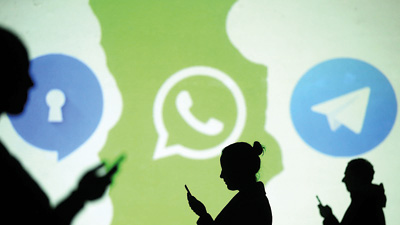How to stay healthy while online
Our lives online, on social media and the internet makeup a significant part of our identity as human beings in the present era that we live in. We create stories, push various narratives and ideologies, connect with other people and bots, and feel a sense of comfort knowing that there is something out there on the web, that we can grab onto, both in times of joy and despair.
We are gradually entering a space, where human beings get high on technology, and they receive their serotonin and dopamine boosts through constant exposure to curated content that arrive on their news feed. It is almost like being dependent on a substance. The high’s, the low’s, the withdrawals and the repetition of the cycle.
Social media in all its entirety has shaped to a large extent the lens through which we view the world. It is a fascinating way to learn, to share knowledge and information and most importantly it allows a voice to be heard. However, the way we inhabit online spaces is also influenced by boredom, the lack of social connection and poor social skills. Real time conversations, face to face are no longer effortless. Making eye contact, giving another one’s undivided attention and showing genuine interest in a person are skills and qualities that are slowly dying a natural death, because of the anonymity and distance we experience on the internet. We have reached a time where conversation skills need to be taught.
The content we consume on social media, the comparisons we make with what we see others doing, and the constant pressure to achieve and succeed can lead to low self-esteem and therefore also increase the vulnerability to develop mental health problems like Depression and Anxiety.
In the context of mental health, another consideration is the contagion effect of exposure to constant negative content. For example, post Easter Sunday Attacks in Sri Lanka, many people spent countless hours online, refreshing their feeds, watching videos, and reading every article they could get their hands on. While this is quite natural after a disaster of this magnitude, it also contributed to increased anxiety, stress, and people also experienced depressive symptoms. The more connected we are virtually, the more disconnected we become in real time. Deteriorating social skills, and the lack of interest in human to human connection also leaves one isolated and lonely. Loneliness has a strong relationship with a variety of mental health problems including suicide and self-harm. This has led to the internet being used as a space to relieve pain, to act out difficult emotions, and to also relieve stress. Our presence online has proven to be a powerful distraction from problems and painful emotions that we need to address.
(The author of the article is a Counselling Psychologist, mental health advocate and trainer)
Have a question on mental health ? Write into mirrormagazine@gmail.com
| Quick Tips | |
| 1. Set consistent and clear boundaries to regulate your internet use. It is easy to get lost in cyberspace, and to lose track of time and space, so setting alarms and reminders can help you stay balanced and healthy. 2. Find hobbies and other interests that stimulate you. Eg : Playing a sport, reading a paperback book, spending time with a pet or gardening. 3. Identify something you can nurture and help grow. It helps to pay attention to something else that is not the internet. This could be a plant or a pet. 4. Engage in activities like yoga and mindfulness. There are numerous classes and courses available in the country. 5. Spend time outdoors. It is like a reset button for your brain. Hiking is an option you can consider in Sri Lanka or it could just be a walk in your neighborhood park. 6. Invest in a rich social life. Make time to meet people face to face, have conversations and lay firm boundaries on the use of devices during meetings. Talk to each other. 7. Be an informer on social media and not a me-former. 8. The number of ‘likes’ you receive or the ‘retweets’ that you receive on social media does not define you as a person. Identify other skills and strengths that you possess and spend time developing them. Your identity is much more than buttons that can be pressed. |


